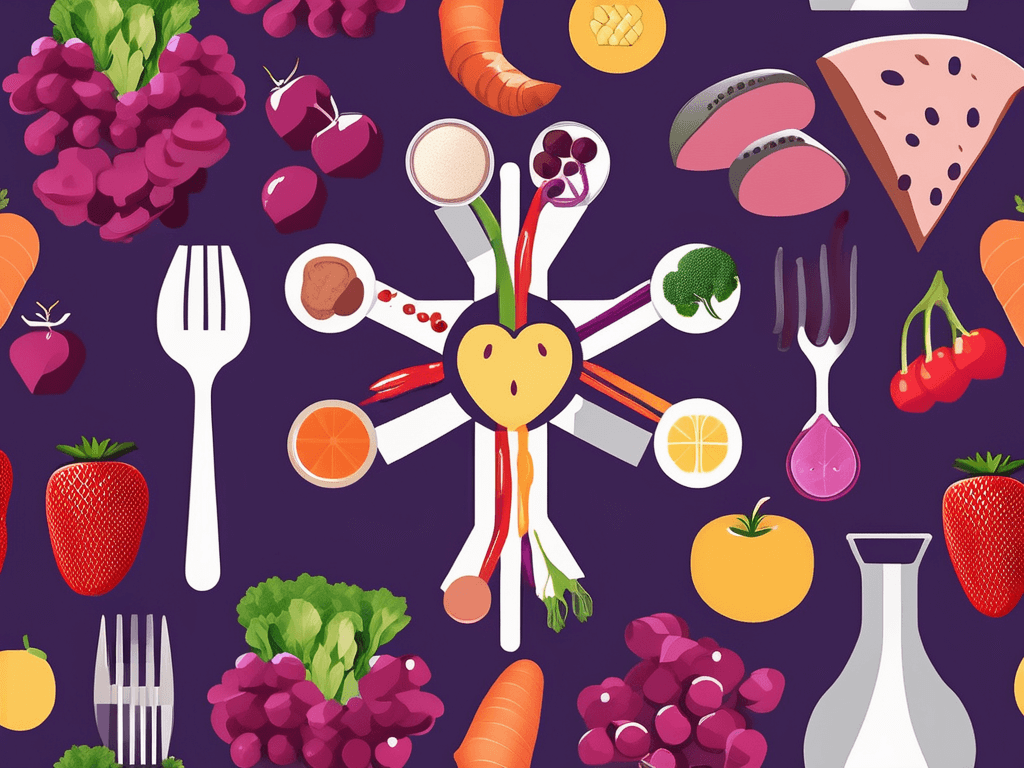Facing cancer is a daunting journey, where nutrition plays a pivotal role in supporting one’s health and recovery. This comprehensive guide delves into the nutritional challenges and necessities during cancer treatment, emphasizing the importance of a balanced diet, hydration, and the support of a dietitian. It offers practical advice on managing weight changes, boosting immune function with key nutrients, and sustaining energy. With personal anecdotes and expert insights, the post is a beacon of hope and guidance, showing how a tailored nutritional plan can enhance the healing process and improve overall well-being during the tough battle against cancer. It’s an essential read for those navigating the complexities of cancer treatment, providing the tools needed to face the journey with strength and resilience.
A cancer diagnosis can bring about a whirlwind of emotions and challenges. As you embark on your treatment journey, it’s important to prioritize your health and well-being, including your nutritional needs. During cancer treatment, your body may undergo changes that can affect your appetite, weight, and overall nutrition. By understanding the importance of maintaining a balanced diet and addressing weight changes, as well as incorporating key nutrients and staying hydrated, you can support your immune function and enhance your energy and strength. Don’t forget the invaluable support of a dietitian who can provide personalized guidance and support throughout your treatment.
Nutritional Needs During Cancer Treatment
When undergoing cancer treatment, your body may have increased nutritional needs. Your healthcare team will help you determine the specific needs and recommendations for your situation. It’s common to experience changes in appetite, taste, and digestion. Certain treatments can cause nausea, vomiting, and fatigue. These challenges can make it difficult to eat a sufficient amount of food or make it harder for your body to absorb nutrients. However, proper nutrition is vital during this time to support your immune system, maintain strength, and assist in the healing process.
During cancer treatment, it’s important to focus on consuming nutrient-dense foods that provide essential vitamins and minerals. Foods rich in antioxidants, such as fruits and vegetables, can help reduce inflammation and oxidative stress in the body. Including sources of lean protein, like poultry, fish, tofu, and legumes, can support muscle maintenance and repair. Whole grains, nuts, and seeds are excellent sources of fiber, which can aid in digestion and help regulate blood sugar levels.
In addition to paying attention to what you eat, staying hydrated is crucial for managing side effects like dry mouth, constipation, and dehydration. Drinking water, herbal teas, and clear broths can help maintain proper hydration levels. Avoiding sugary drinks and excessive caffeine is recommended, as they can contribute to energy crashes and disrupt your body’s fluid balance. Consulting with a registered dietitian can provide personalized guidance on creating a nutrition plan that meets your specific needs and preferences.
Importance of Maintaining a Balanced Diet
While facing the challenges of cancer treatment, maintaining a balanced diet can provide you with the essential nutrients your body needs. A well-rounded diet should include a variety of foods from each food group to ensure you are getting the necessary vitamins, minerals, and macronutrients. Aim to include lean proteins such as poultry, fish, and beans, as well as whole grains, fruits, vegetables, and healthy fats like avocados and nuts. Eating a wide range of foods can help provide your body with the nutrients it needs for optimal functioning.
It’s important to note that a balanced diet not only supports physical health but also plays a crucial role in mental well-being. Certain nutrients, such as omega-3 fatty acids found in fish, have been linked to improved brain function and mood regulation. Incorporating foods rich in antioxidants, like berries and leafy greens, can also help reduce inflammation in the body and support cognitive function. By nourishing your body with a variety of nutrient-dense foods, you are not only fueling your physical health but also promoting mental clarity and emotional stability.
Furthermore, maintaining a balanced diet can have long-term benefits beyond the scope of cancer treatment. Research has shown that a diet rich in fruits and vegetables can help lower the risk of chronic diseases such as heart disease, diabetes, and obesity. By establishing healthy eating habits during cancer treatment, you are not only supporting your body’s recovery process but also laying a foundation for a healthier future. Remember, food is not just fuel for the body; it is a powerful tool that can aid in healing and promote overall well-being.
Addressing Weight Changes and Loss of Appetite
Weight changes and loss of appetite are common challenges for many cancer patients. These can occur due to treatments, medications, or the cancer itself. If you’re experiencing weight loss or struggling to eat, it’s important to speak with your healthcare team. They can provide guidance on managing these challenges and suggest strategies to help you maintain your weight. In some cases, they may recommend a nutrition supplement or appetite stimulant. Remember, your dietitian can help tailor a meal plan to your specific needs and preferences.
It’s essential to monitor your weight regularly and keep track of any changes. Sudden or significant weight loss can impact your overall health and well-being. Your healthcare team may recommend incorporating high-calorie, high-protein foods into your diet to help with weight maintenance. Additionally, staying hydrated is crucial, so be sure to drink plenty of fluids throughout the day.
Furthermore, engaging in light physical activity, such as short walks or gentle stretching exercises, can help stimulate your appetite and improve your overall well-being. It’s important to listen to your body and not push yourself too hard, especially during treatment. By working closely with your healthcare team and following their recommendations, you can better manage weight changes and loss of appetite during your cancer journey.
Key Nutrients for Supporting Immune Function
During cancer treatment, your immune system may be compromised, making it crucial to prioritize nutrients that support immune function. Vitamin C, vitamin E, vitamin A, zinc, and selenium are just a few examples of nutrients that play a role in immune health. These nutrients can be found in a variety of fruits, vegetables, nuts, seeds, and whole grains. Including these foods in your diet can help support your immune system and aid in your recovery.
Furthermore, it’s important to note that vitamin C is a powerful antioxidant that helps protect cells from damage and plays a key role in immune function. Citrus fruits like oranges, strawberries, and kiwi are excellent sources of vitamin C. Vitamin E, another antioxidant, helps combat oxidative stress in the body, which can be particularly beneficial during times of illness. Nuts and seeds such as almonds, sunflower seeds, and hazelnuts are rich in vitamin E.
Additionally, vitamin A is essential for maintaining the integrity of the skin and mucosal cells, which act as a barrier against pathogens. Carrots, sweet potatoes, and spinach are great sources of vitamin A. Zinc is a mineral that supports immune cell function and helps regulate inflammation. Foods like oysters, beef, and lentils are high in zinc. Lastly, selenium is a trace mineral that plays a crucial role in the immune response and can be found in Brazil nuts, tuna, and whole wheat pasta.
Hydration and Its Role in Treatment
Staying hydrated is essential during cancer treatment. It helps your body function properly and supports the transportation of nutrients. Certain treatments can cause dehydration, so it’s important to drink plenty of fluids throughout the day. Water, herbal teas, and broth-based soups are excellent choices. Limit your intake of sugary beverages, as they can contribute to weight gain and may reduce your appetite for nutrient-dense foods.
Meal Planning for Energy and Strength
Meal planning can be a valuable tool in ensuring you’re consuming enough nutrients to support your energy and strength. Focus on incorporating a variety of foods from all food groups and aim for regular small meals and snacks throughout the day. This can help combat fatigue and maintain consistent energy levels. Consider working with a dietitian to develop a personalized meal plan that suits your taste preferences, food tolerances, and treatment schedule.
Collaborating with a Dietitian for Personalized Support
Throughout your cancer journey, collaborating with a registered dietitian can provide invaluable support and guidance. A dietitian can help you navigate your nutritional needs during treatment and offer personalized recommendations. They can assist with meal planning, address dietary concerns and restrictions, and help you find ways to enjoy food during this challenging time. By working with a dietitian, you’ll have a trusted partner to support you in optimizing your nutrition and overall well-being.
In conclusion, prioritizing your nutritional needs during cancer treatment is crucial for your overall health and well-being. By maintaining a balanced diet, addressing weight changes and loss of appetite, incorporating key nutrients, staying hydrated, and collaborating with a dietitian, you can support your immune function, ensure optimal energy levels, and enhance your strength. Remember, you don’t have to face these challenges alone. Reach out to your healthcare team and take advantage of the support and guidance available to you. You are not alone in this journey, and together, we can overcome the obstacles that cancer presents.






